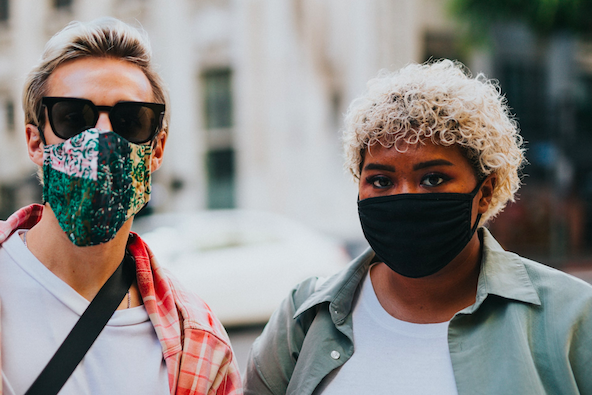
As the COVID-19 crisis lurches into its fifth month of continued public health and economic chaos, one theme has become clear: This pandemic has exposed fissures across society that have long been evident. Over the past few months, the Band-Aid has been ripped off, leaving those wounds exposed and, now, they're much more difficult to ignore.
Sudden self-awareness about race relations is no guarantee of fair and transparent hiring
Take race relations in the U.S. A recent survey from Just Capital revealed that about two-thirds of the largest U.S. corporations have released statements saying they “stand” with their Black employees and the wider Black Lives Matter movement. But only a little more than half of the same companies have publicly disclosed the racial and ethnic breakdown of their workforces.
The result is that the steady stream of promises to boost diversity hiring by 2025 ring hollow. Even worse, as Nihar Chhaya summed up yesterday in Forbes, “The burden of increasing awareness about the issues that diverse employees face continues to fall on the shoulders of the excluded group, rather than placing the onus on those in power to recognize their privilege and drive change.”
Aside from the moral and fairness issues surrounding how companies hire and retain their workers, researchers at Just Capital argue that these companies are leaving money on the table. The research team looked at a 12-month period ending on May 31 and concluded companies that have fully disclosed their demographic makeup outperformed their less transparent peers by 6.1 percent.
Essential workers still unprepared, overlooked and forgotten
If there were to be a time capsule buried today that sums up how COVID-19 hit the U.S., it would contain handmade face masks, an empty bottle of hand sanitizer, magazine covers of Jeff Bezos and perhaps a thumb drive full of “Karen” memes. First, the pandemic has accelerated inequities as most well-off are overall better off. Various headlines have showcased how many of America’s billionaires have actually reaped financial gains during this pandemic. Forbes reported that 10 billionaires generated another $23 billion in gains in one week.
Meanwhile, the bold promises to “stand” with essential workers in industries like logistics, food service and retail are largely in the rearview mirror. For now, the trust is still there; a Just Capital survey taken in partnership with The Harris Poll found that 60 percent of Americans believe companies are doing what they can to secure the health and economic well-being of their employees. And 90 percent agree this crisis is an opportunity for America’s largest companies to “reset” and do everything they can to cement good relationships with their stakeholders.
For many frontline workers, however, the reality is far different. Just Capital’s research found that only a little more than a quarter of the large companies it surveyed provided employees with personal protective equipment (PPE) at no charge. Less than a third of these same companies revealed any new paid sick leave policies in the wake of COVID-19.
COVID-19 begs for a full reset across society
Granted, Just Capital’s research is one snapshot of how corporations and the people leading them are performing during the COVID-19 crisis. Nevertheless, the message is clear: The current economic system in which we are now living is far from succeeding, and corporate executives need to watch their back, as citizens still have their eyes focused on how companies are behaving during this pandemic.
Plenty of room for improvement exists when it comes to social and economic fairness, and the business community is in a position to make things better for everyday Americans — if it is ready to take on a massive reset.
Image credit: Nathan Dumlao/Unsplash

Leon Kaye has written for 3p since 2010 and become executive editor in 2018. His previous work includes writing for the Guardian as well as other online and print publications. In addition, he's worked in sales executive roles within technology and financial research companies, as well as for a public relations firm, for which he consulted with one of the globe’s leading sustainability initiatives. Currently living in Central California, he’s traveled to 70-plus countries and has lived and worked in South Korea, the United Arab Emirates and Uruguay.
Leon’s an alum of Fresno State, the University of Maryland, Baltimore County and the University of Southern California's Marshall Business School. He enjoys traveling abroad as well as exploring California’s Central Coast and the Sierra Nevadas.














